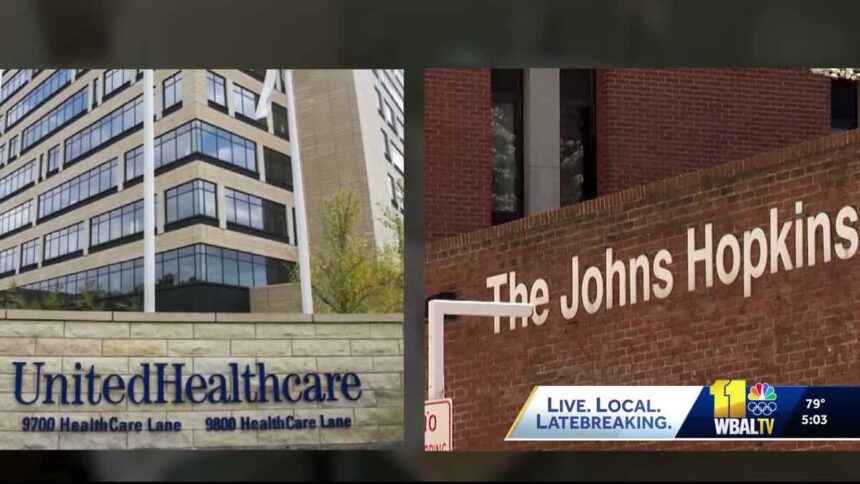Johns Hopkins Medicine and UnitedHealthcare have officially concluded their contract negotiations without reaching an agreement, prompting significant implications for patients and providers alike. After over eight months of discussions, which included multiple deadline extensions, the two parties have failed to resolve key differences related to care policies.
In a statement regarding the negotiations, Kim Hoppe, the vice president of public relations for Johns Hopkins Medicine, emphasized that the disagreement was not primarily about financial terms. Instead, the focus was on contract language that Hopkins officials argued would hinder their ability to deliver quality patient care. “Despite our best efforts to find common ground… UnitedHealthcare refused to agree to reasonable contract language,” Hoppe stated. She further elaborated that the terms proposed by UnitedHealthcare would make it challenging for Johns Hopkins to provide timely care without excessive delays or denials.
Consequently, Johns Hopkins officials have chosen to inform their patients about this stalemate now, ahead of the upcoming open enrollment period. This communication is intended to give patients and employers adequate time to consider alternative insurance options, reflecting the institution’s commitment to ensuring uninterrupted patient care.
On the other hand, Joseph Ochipinti, CEO of UnitedHealthcare in the Mid-Atlantic region, claimed that Johns Hopkins is walking away from negotiations due to UnitedHealthcare’s refusal to accept contract language permitting the medical institution to deny treatment to members of employer-based plans they deem unfit for partnership. “We will not allow any health system to turn patients away at their discretion,” Ochipinti asserted, highlighting the importance of network providers honoring their commitment to care for all patients.
The proposed policies from Johns Hopkins have drawn criticism from various physician groups, including the Maryland State Medical Society. Gene Ransom, representing the organization, indicated that many physicians have expressed ongoing frustration with UnitedHealthcare’s practices, which they believe have become increasingly aggressive in denying necessary care through prior authorization and other bureaucratic hurdles.
Importantly, the dispute affects Johns Hopkins providers located in Maryland, Virginia, and Washington, D.C. However, the provider locations in Florida will remain within UnitedHealthcare’s network, a distinction that may offer some reassurance to patients residing in that area.
As the situation develops, both institutions appear to remain open to further negotiations while highlighting their respective commitments to patient care.








